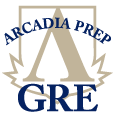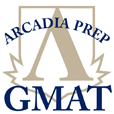If x and y are perfect squares, then which of the following is not necessarily ... ...
If
x and
y are perfect squares, then which of the following is
not necessarily a perfect square?
(A)

(B) ...
(C) ...
(D) ...
(E) ...
*This question is included in
Nova Press: Set B - Substitution
Replies to This Thread: 1
|
----
Posted: 01/20/2013 12:01
What about 9 and 16? 9+16 = 25 wich is a perfect squere of 5.
9 is a perfec squere of 3
16 is a perfect squere of 4

Admin
Reply 1 of 1
Replies to This Thread: 0
|
----
Posted: 01/25/2013 00:20
Hi Andres,
Notice the wording NOT NECESSARILY, so we are looking for an answer that COULD be a perfect square, but CANNOT be a perfect square for at least one pair of values for x and y.
For your choice of x (= 9) and y (= 16), x + y (= 9 + 16 = 25) is a perfect square, but if x = 4 and y = 9, then x + y = 4 + 9 = 13, which is not a perfect square. So, x + y is not necessarily a perfect square. All the other answer-choices are ALWAYS perfect squares for any choices of perfect squares x and y.
Nova Press
Replies to This Thread: 0
|
----
If x and y are perfect squares, then which of the following is not necessarily ... ...
Posted: 10/14/2013 12:14
What does the term perfect square mean?
Replies to This Thread: 1
|
----
If x and y are perfect squares, then which of the following is not necessarily ... ...
Posted: 10/14/2013 14:13
what does the term "perfect square" mean?

Contributor
Reply 1 of 1
Replies to This Thread: 0
|
----
Posted: 11/01/2013 14:24
Mohammad, perfect square is the square of another whole number. So 4, 9, 16, 25, 36, etc. are all perfect squares.











